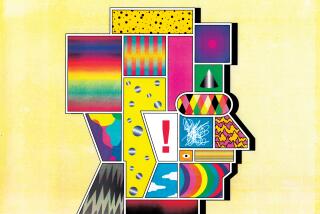Sites Geared Toward Easing Anxiety and Panic
- Share via
For most of those not directly affected, the attacks of Sept. 11 are not expected to have significant mental health consequences. But some experts anticipate an increase in generalized anxiety, panic attacks, paranoia and other signs of mental distress--especially in people with a history of these problems. So what exactly are the symptoms of generalized anxiety, and how serious can they be? For that matter, what constitutes a panic attack? Several Internet sites provide answers:
Anxiety Disorders Assn. of America (https://www.adaa.org): This site, by an association of professionals who study and treat anxiety disorders, provides good thumbnail descriptions of everything from social phobia to general anxiety disorder--the excessive, uncontrollable worrying that can last for months and is often associated with substance abuse, as well as depression. You will learn, quickly, that most of these anxiety disorders are anything but subtle: “Although generally lasting only a few minutes, panic attacks cause a person to feel as if he or she is having a heart attack, dying or going crazy,” the site says. The anxiety self-test will also separate the worried from the deeply worried. Sample question: “Are you troubled by repeated, unexpected panic attacks, during which you suddenly are overcome by intense fear or discomfort for no apparent reason, or the fear of having another panic attack?” If the answer to this and other questions is yes, you’ll find brief discussions of treatment options--including medications--along with a feature that enables you to search for a specialist by area code.
Anxiety Panic Internet Resource (https://www.algy.com/anxiety/): Staffed partly by anxiety-prone volunteers, this site has an almost irreverent, welcome-to-the-anxiety-club tone that is soothing in itself. The tAPir site, as it calls itself, also does a fair job of explaining anxiety disorders, as well as treatment approaches. Quotes throughout-- I had trouble concentrating, even reading the newspaper or a novel. Sometimes I’d feel a little lightheaded. My heart would race or pound. And that would make me worry more --remind that people with these problems aren’t crazy: They’re from mostly normal folks whose worries and fears have become exaggerated. A newsletter page includes essays on coping tips, panic disorders and cognitive-behavioral therapy, which is based on changing the way people think about--and respond to--stress.
National Institutes for Mental Health (https://www.nimh.nih.gov): The NIMH provides authoritative and surprisingly readable digests of most major mental health conditions, including all varieties of anxiety disorders. The site includes a page of mental health news, and information on government clinical trials. Best of all, the NIMH has compiled pages of good information and resources for people affected by the Sept. 11 attacks, including features on how to talk to children haunted by images of the disaster, and how to talk to kids about violence in general. The agency funds a huge amount of mental health research, and reports on it here--making this site perhaps the best resource on the net to find out what researchers are learning about anxiety disorders, depression and other distress, and how to treat them. A feature called “What Are Scientists Learning About Trauma in Children and Adolescents?” provides a quick summary of recently published studies, for instance.
Psych Central (https://psychcentral.com): In his many years hosting this popular site, psychologist John Grohol has come to consider himself the conscience of online mental health--and he takes the job seriously. Along with his mailing lists, newsgroups and mental health Web links, Grohol has compiled a list of grief and crisis pages relevant to the terrorist attacks, plus a collection of articles from sources ranging from the NIMH to the Hospice Foundation to Bill Moyer’s PBS special on death and dying.


